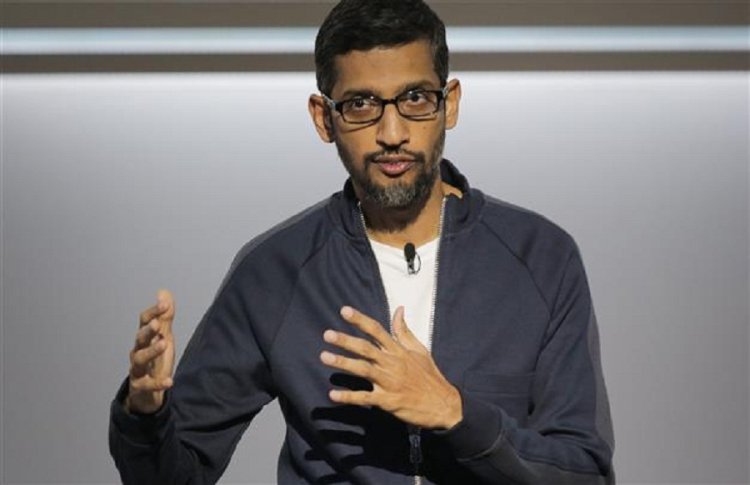Sundar Pichai sees Google’s future in internet search AI, Not in Metaverse
While many other tech giants see the metaverse as the next frontier for growth, Sundar Pichai sees the future of Google in its oldest proposal: Internet Search. "We are fortunate that our mission is eternal," Pichai, CEO of Google and parent company Alphabet Inc., told Bloomberg Television's Emily Chang at the Bloomberg New Economy Forum in Singapore. "The need to organize information is greater than ever."

While many other tech giants see the metaverse as the next frontier for growth, Sundar Pichai sees the future of Google in its oldest proposal: Internet Search. "We are fortunate that our mission is eternal," Pichai, CEO of Google and parent company Alphabet Inc., told Bloomberg Television's Emily Chang at the Bloomberg New Economy Forum in Singapore. "The need to organize information is greater than ever."
Earlier this month, Alphabet briefly exceeded its market value by $2 trillion, driven by revenue and profit growth during the pandemic. When asked where the next trillion dollars will come from, Pichai pointed to the company's core services. He predicts that consumers will ask more questions to their computers through voice and “multiple interactions”.
"The ability to adapt to all of this and evolve search will continue to be the best opportunity," said the CEO. Since coming to power at Google in 2015, Pichai has pushed the company deeper into cloud computing and artificial intelligence, facing increased regulatory oversight. In an interview, Pichai highlighted Google's core growth business cloud, YouTube video service, and app store, and said that AI investments are key to each. Indiaborn's CEO also said he expects more Google products to be developed and tested first in Asia and then worldwide. But not in China.
After announcing plans to introduce a search engine to mainland China in 2018, Google removed most of its services in China's most populous country after feeling the ire of its employees. "I don't think this will change," Pichai said. But he doesn't share the vague views of other Silicon Valley executives about China's technological advances.
Pichai acknowledged that Google was on par with Chinese companies in artificial intelligence and quantum computing, but argued that the United States and China had opportunities to work together in areas such as climate change and artificial intelligence security. Some of the biggest Google peers like Microsoft Corp. and Facebook parent company Meta Platforms Inc.
They presented their future in the virtual world of the metaverse. Google has taken multiple approaches to its virtual and augmented reality products, but with limited success. A few years ago, his first attempt at Google Glass headgear failed. Google has recently declined to provide details on its strategy, but a new department reported by Pichai has embraced these efforts. “I have always been in awe of the future of immersive computing,” he said. “I don't belong to any company.
This is the evolution of the Internet." Metaverse proponents often talk about the potential of new technologies like blockchain and cryptocurrencies. Except for some cloud partnerships, Google has largely avoided this part of the industry. Pichai said there is no cryptocurrency. “I wish I could,” he said. "I got my hands on it, you know, sometimes."







